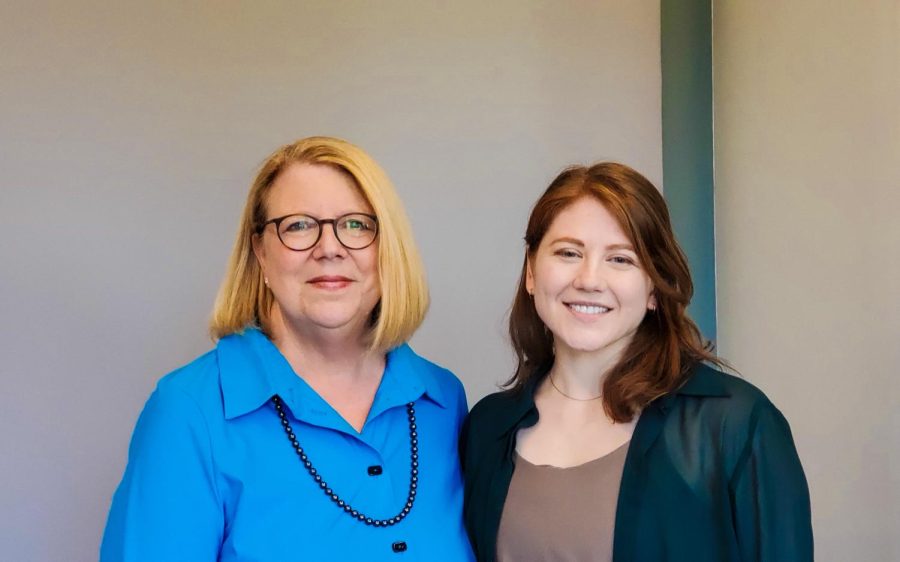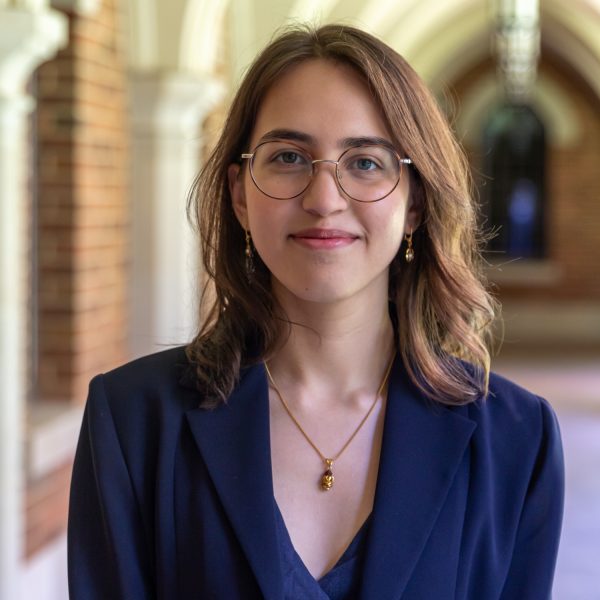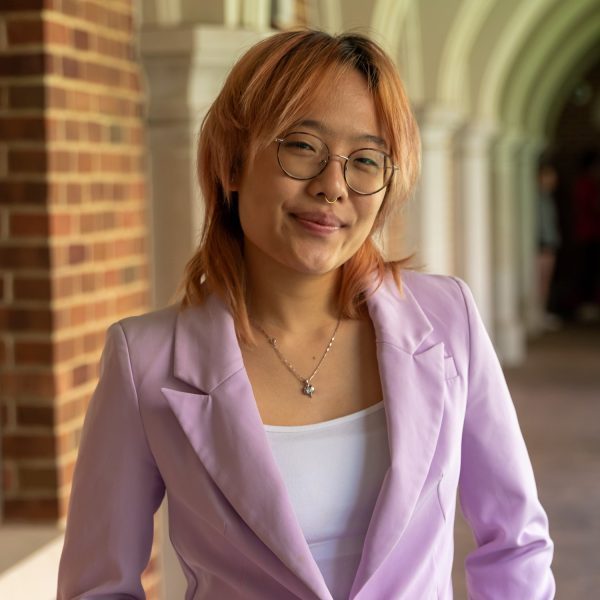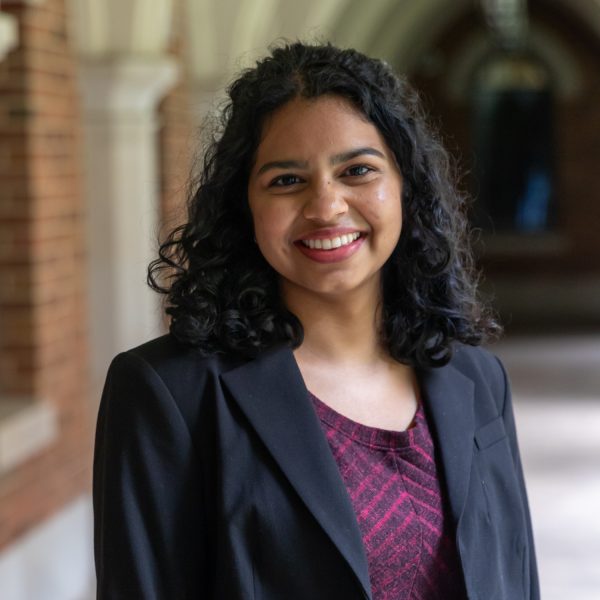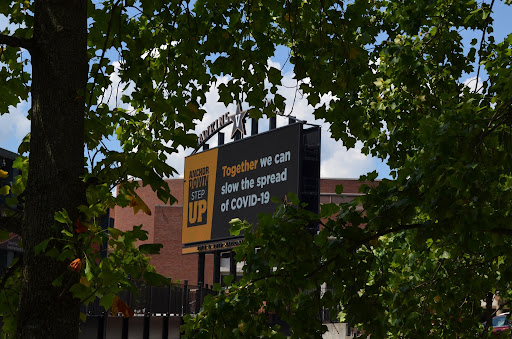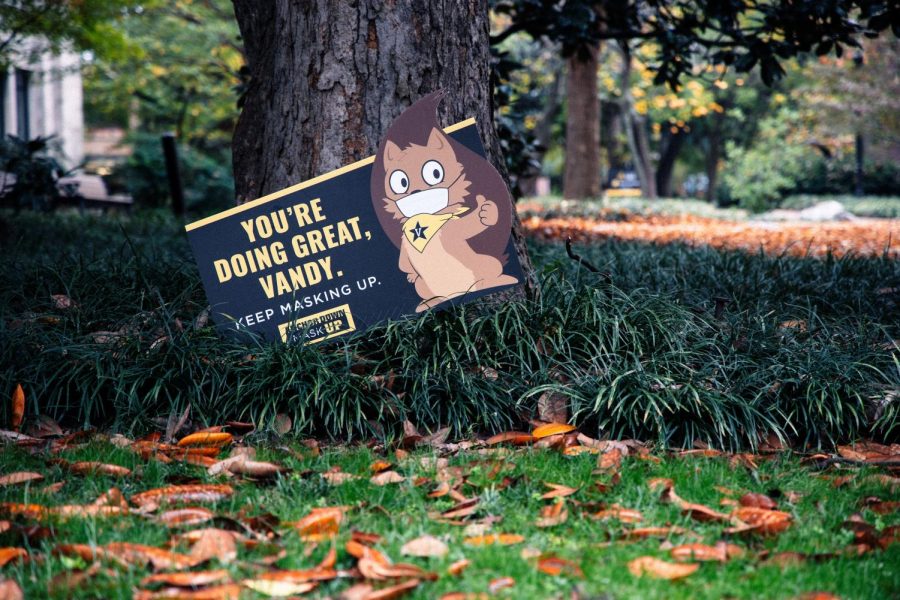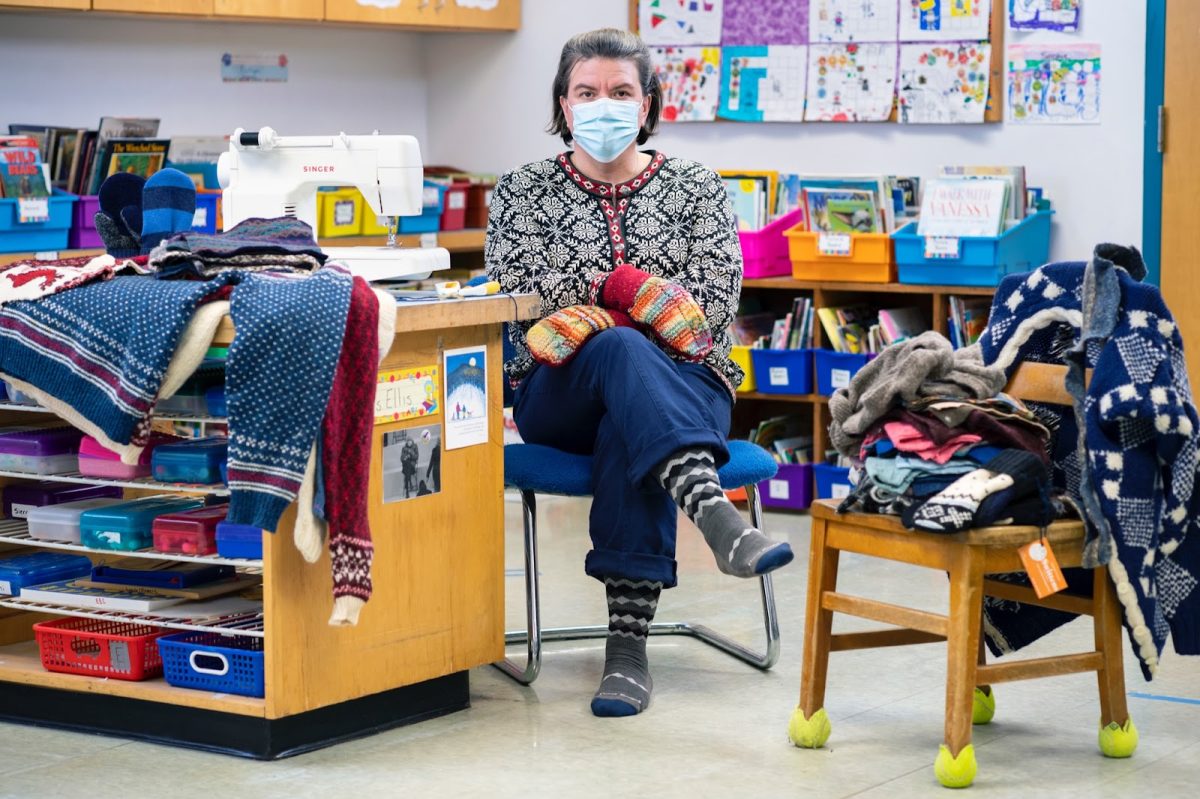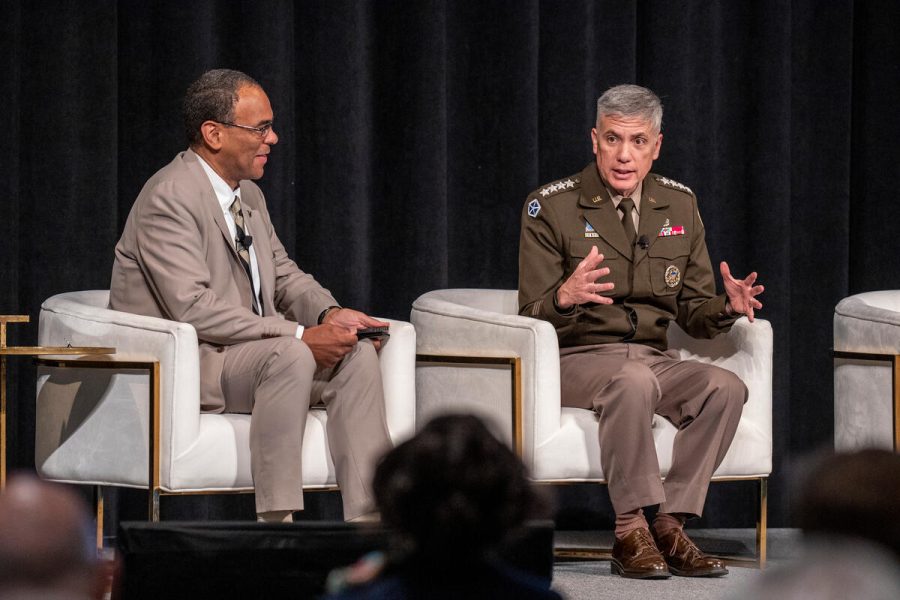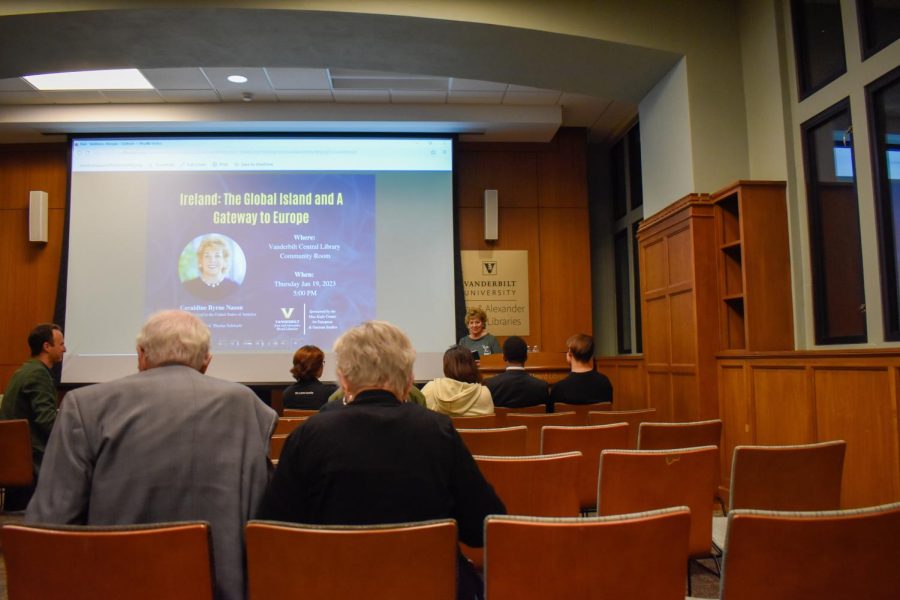Vanderbilt’s new Reproductive Health and Parental Resource Coordinator Hannah Proctor (MSN ‘16), assumed her new role on Sept. 1. Proctor is a certified nurse-midwife and, in this recently-created role, she will serve as the first point of contact for pregnant individuals and parents in the Vanderbilt community in need of support. This [noun] includes students, faculty, postdoctoral students and staff.
Proctor and Vice Chancellor for Health and Wellness Pam Jones spoke to The Hustler on Sept. 15 about the reproductive health task force, resources available on campus and Proctor’s new role.
The Vanderbilt Hustler: Can you describe the Reproductive Health Task Force, and how its decisions guide your work?
Jones: The taskforce had a few major things that we’ve focused on, and one was—what does [the overturning of Roe v. Wade] mean for clinical care? What does it mean just in terms of the care to help us understand the laws, help us understand what this really means? Dr. Ronnie Alvarez, the chair of the Department of OBGYN, sits on that. It’s been a good way to envision and understand what the Medical Center is doing, and then we’ve had wonderful legal advice, because the laws are very complicated. The next thing was really ‘what’s the impact on student and employee health.’ So what does this mean for our community, and what strategies do we need to put in place to mitigate the impact of that?
Then you have to think about educational instruction and research—what does this mean in labs, and what does this mean in terms of how medical students are educated? The fourth thing was really to promote that culture of civil discussions and civic engagement and be consistent with the Vanderbilt approach of being able to talk to each other about things even when they’re difficult topics. And so far, the task force has moved pretty quickly on most of this. Creating Hannah’s role was the first set of recommendations. Dean of Students G.L. Black and I co-chaired a subcommittee that sat down and said ‘Okay, we got to figure out what we are going to do today.’ One of the parts that came out of that was Hannah’s role, because we really do feel like there is a person-centered approach to this. We have to understand what each individual needs. I tend to look at it as saying that anytime we have something like this or a crisis that happens, it makes us step back and think creatively about it. And let’s look at the whole picture. Let’s not just focus on the narrow view. Let’s look at the whole picture of what does our community need in terms of reproductive health and parenting support? And so that’s sort of how we tried to approach it, but also by putting in some specific things like the critical fund that will help support people and specific strategies around that. I also felt so good about the opportunity for a certified nurse midwife to be able to step into this role just because I know how they’re trained. I know how they think, and I know how they support individuals through their journeys.
You began your position as the reproductive health and parenting resource coordinator on Sept. 1. In the last two weeks, what has your job entailed, and what level of need have you identified for your role?
Proctor: The core role of the position is to be a contact point person and advocate for people in the Vanderbilt community who are seeking out information and a safe space about their reproductive health or any other parenting questions. The role of being an advocate is going to be one that is meeting people in consideration of their situation, giving them all of the existing safe resources, sitting with them and letting them make an informed decision. Then, depending on what they’re wanting, being able to walk them through that. ‘So, do you want me to reach out to this person for you, or would you like their email? Do you want to fill out the form right here? Or do you want me to just send you the link to the form?’
It’s really, as Pam said, about being very present and about having someone actually be there for people. The resources in the university already exist and the people that make up these programs are super experienced, but, considering the reason someone may be seeking out advocacy, it’s stressful. If someone wants more information or to have someone who can be there with them, then they should have that.
Jones: One thing I’ll add, because I know what Hannah has been doing during this first part of her job, is that we’re really very much in a discovery and outreach phase. If somebody calls tomorrow, we know what to do. But more than that, it’s about really understanding the community, understanding what those needs are and, more importantly, shaping the program to meet the needs. Oftentimes, we’ll go design stuff, and it doesn’t meet the needs because we haven’t asked people, and we haven’t listened. We’re trying really hard to listen and get out there. She’s been meeting with a lot of people, including G.L. Black, students and the UCC.
Proctor: I just wanted to capture what the role will be like when it’s in full momentum. But yeah, the last two weeks have been scheduling a lot of meetings with point-people and point-programs at Vanderbilt who’ve been doing this for a long time—working with students and working with employees—and saying, ‘describe to me what you do.’ I want to know more about what you do. I want to know how this role can be an assistance to you, for the community?
Jones: And we’re building the processes. Like, exactly how does somebody apply, exactly how do they get in touch with Proctor? How do we coordinate with the UCC for students or employee assistance for employees—so a lot of logistics on top of that.
How do you think your background as a certified nurse, midwife and Vanderbilt student will shape or guide your current role?
Proctor: With being a nurse midwife, it’s obvious that having clinical background experience and having a physiologic understanding and education on reproductive health is a great foundation. But specifically for a nurse midwife, there is something called the Hallmarks of Midwifery. I’m not going to list them, but if you were to read through those, you would see multiple hallmarks, and it makes a lot of sense why a midwifery foundation is very appropriate for this role. I’ll sum it up by saying that as a certified nurse midwife—a health care provider—you provide prenatal care, you provide gynecological care to people who aren’t pregnant and you provide care to people who are giving birth and postpartum. But the core of that care is that you are being person-centered. So, I am never at the center of conversation. It’s a way of really respecting them and letting them have the space that they deserve. I think that this role along with that midwifery foundation has the opportunity to meet the needs of a community that is very diverse.
During the height of the COVID-19 pandemic, you helped lead contact tracing efforts at Vanderbilt. How do you think we can apply the lessons from the pandemic to reproductive and maternal health work in Tennessee in Nashville?
Proctor: I personally don’t feel experienced enough to provide a lesson. I will consider myself a new midwife until I’m like 10 years in and, even then, I’ll be like a less-new midwife; I’m five years in now. But I will say, working in the COVID-19 contact tracing was very much a public health position. It did allow me to realize that, regardless of whether you’re working in contact tracing or you’re working with something like pregnancy or reproductive health, it was really just poignant and impactful to me that people are so eager to have the right information. It can be very stressful, or it can just be really intense. It makes a huge difference to have a person who is there to provide unbiased references and conversation so that people can feel informed because yes, that’s agency and autonomy, but it’s also just mentally less stressful to have that. I think that gave me a great perspective.
Jones: On a macro-level, I think one of the things that we always knew was that the health of our community was important. But when COVID-19 happened, the health of our community was really important. So I think it caused us all to step back and say ‘okay, what are these needs? How can we move forward? How can we still function and be committed to our values as we’re doing this?’ And, that is a huge lesson that’s come out of COVID-19 in terms of connecting with each other: Having to do hard things together, but being able to do that. There’s a close linkage with this and mental health in terms of people feeling their own sense of security and an assurance of what their values will be supported in some way.
Can you talk more about the employee and student critical hardship funds, how students can approach you with concerns and what you hope they know about this process?
Jones: Some of these details are still being worked out. In terms of the student fund, we’re working very much in partnership with G.L. Black, because there’s already a number of funding sources for students who need additional support. We’re going to tie into those but essentially have Hannah be the point of contact for people. This is a person-centered program. It’s about providing informed information and walking somebody through the process.
We’re pretty far along in terms of designing that process for the student side. We’ve got a little more work to do on the employee side. Essentially, there are funds that are available for reproductive health and early parenting needs, because we want to support everyone. They can be used for procedures out-of-state that are not provided in-state, including travel costs. What we want people to know is: If you have an issue like this, access Hannah, and she’ll help you work through it in a very specific way and very carefully. It’s health information, so we will do all the right things in terms of providing that kind of privacy.
Members of VSG have called for increased student and staff input into the university’s response to reproductive care, such as having student and staff representation on the university’s task force. In your role, how do you plan on engaging with community feedback and if so, how will you do so?
Proctor: Currently the goal that’s at the forefront of my mind is outreach. And outreach makes sense because you have the chance to go talk about the role and people can meet me. But it’s crucial because the role is new and outreach allows an opportunity to go out and listen—very active, very mindful listening. Listening is going to be the foundation and the propeller of the role. Anyone who feels willing and safe enough to communicate questions, concerns, feedback, gaps in needs to me on how this role could advocate for them, could support them: I’m listening.
With that said, something I’ve been very transparent about is that this is a diverse campus, and there’s a gap in representation. I’m cis-white, able-bodied, and it is really important to acknowledge that. I would also be an incompetent midwife and not doing due diligence to this role if I was not vocal about health inequities. So that is a big part of outreach. That’s a big part of listening to everyone. It means acknowledging the inequities and listening to those communities, BIPOC and LGBTQ+, and figuring out how they do not feel heard right now and how can the role be supportive in the capacity that I can be. I recognize there’s gaps, but listening is going to lay the foundation. So that’s the biggest goal of mine at the forefront of my mind in terms of outreach.
Jones: One of the things that the task force does is specifically asking people to go out and talk to people and see what they’re hearing. For example, we struggled with the name for her position: We needed to have it specific enough for people to understand. That name came from a community member who suggested it. So, we are listening and there’ll be other mechanisms down the road for continuing to engage beyond this outreach for that.
Are there any plans in the reproductive health taskforce to include more structural representation or community input?
Jones: What we’re trying to do right now is figure out what the task force needs to do next. The first recommendations that I talked about, about what we have to do immediately to take care of people, are pretty much landed. Next, we really need to figure out the role of that task force. Does it need to be a task force or do we need something like an ongoing advisory committee? I really can’t answer that that’s been landed, but there’s discussions right now about what we do for the future and what the next steps are. A task force tends to imply that you’re dealing with the short term crisis—what is our long term solution to continue to engage our community and meet those needs?
Could you talk a little bit about what ongoing conversations with the campus community have looked like and if in these conversations there have been needs that cropped up that surprised you or that you didn’t anticipate? How have these been folded into the structure of the role?
Proctor: It’s an ongoing process of recognizing how the role can be at its most supportive with these pre-existing supportive groups.
Jones: We did a town hall and there was lots of information in that and that was early on. People need to understand the laws to the extent we can because they’re changing, and they will change. The taskforce doesn’t put on the events, but the task force essentially engages with individuals who want to. So for example, this weekend, the History department is putting on something and I’m going to be there to be able to talk about what we are doing today, and Hannah’s role and all those types of things. So, there’s been a number of those types of events, and it’s really the community that’s generating those events. The task force is essentially helping organize.
What goals do you have for yourself and your position? What impact do you hope to make moving forward?
Jones: The whole investment of the university in the Office of Health and Wellness is a piece of that investment. Our overall goal is pretty simple. It’s to improve the health and wellness of our community. We’re always thinking about how we’re going to do that, what’s the next resource, how do we work in partnership with those wonderful programs that are already there? Mental health is the next priority.
Proctor: Outreach education based on what people are wanting to learn about ties into mental health. When someone feels more informed, they have increased agency, which is important.
Jones: Overall, our goal is for Hannah to do what needs to be done in this realm to improve the health and wellness of our community. We want to connect in a proactive way with the community, not just in a reactive way. Right now, we’re a little reactive; let’s get this Student Critical Hardship fund set up. But we want to look at it holistically over time, and we’ll use the role how it’s most needed.
You mentioned that mental health is going to be a big priority. Can you talk more about how you envision mental health support and advocacy to look like in this role?
Jones: Sometimes we work in very close partnership with human resources and sometimes we work in very close partnership with Dean of Students G.L. Black. So, from a mental health standpoint, there’s already a lot of activity, and we know that this role is going to encounter people who need very specific mental health support. So, we’re co-locating Hannah somewhere in the UCC for part of her time and next to the employee assistance program that we’re putting in place to provide a very seamless referral. She has that expertise to say, ‘this is something that’s beyond what I can do, and this individual needs a higher level of support.’
Have you begun your role as a direct resource for the community? If a person was in need today, would they be able to meet with you? What does the timeline look like for balancing direct support with creating community connections?
Proctor: I haven’t had very many people reach out, but for the people who have reached out, we have made appointments with their preference of a timeframe. I asked them about urgency. ‘Do you need a phone call now? Otherwise, when this week is going to work?’ I love getting to meet individual people and getting to talk to them.
We have not had to face the balancing of community outreach with [direct support] yet. I would be uninformed if I was going out into the community not being very aware of the processes that already exist for people. I don’t feel like I’m going to run into any issues with prioritizing outreach and individual meetings. I’m going to give as much time as is needed to make sure that people are getting what they need.
Jones: If she’s in that much demand, then we have a bigger issue that we’ve got to go deal with. I’ve been a nurse executive for longer than I care to mention, so I understand a lot about how to plan systems to meet those needs. We’ll work in partnership until her onboarding is complete.
The university addressed monkeypox at the start of the year in its health and safety update. How would you characterize the threat level of monkeypox in the campus community? Does the university have plans to require or provide the vaccine to the community as it becomes more widely available?
Jones: We have a plan in place, including a plan for isolation and quarantine. The university cannot provide vaccines. That has to be provided through the Health Department. The Health Department has recently opened the criteria for who can receive the vaccine. It was very limited initially. We have a new website that has a lot of information about monkeypox. I’d rather not talk about that in this article, but we’re watching it closely and working with our partners at Student Health and Occupational Health. I hope it doesn’t end up being a big thing. We just got through COVID, can we catch a break? But that’s part of why we kept the Office of Health and Wellness in place; you don’t know what might happen and you need experts to be able to deal with it in partnership with all the others, like Randy Tarkington, G.L. and others.

